IMPACT REPORT
Our 2023 Impact Report celebrates a decade of growth and achievements, spotlighting software development, community engagement, and team expansion. Reading this report, you will learn about our commitment to community building through various events like CC Fest, p5.js Access Day, and partnerships for open-source arts, fostering collaboration, learning, and celebration within the community.
The report also highlights the foundation's internal developments, including expanding the core team and a strategic shift in the Board of Directors toward greater diversity and community representation. The fellowship program remains a cornerstone of our mission, supporting diverse artists, technologists, and educators in pioneering projects at the intersection of art, science, and technology. We also outline the foundation's budget, spending priorities, and investment strategies, emphasizing sustainability and long-term planning. Our dedication to nurturing a vibrant, inclusive community at the nexus of arts and technology is reflected in the ways we work together at the foundation.
Table of Contents
From Our Leadership Team
In 2023, the Processing Foundation celebrated 10 years of p5.js and the foundation’s annual fellowship program, alongside the growth of our core team, new software releases, and expanded impact across our programs, events, and contributor community. As a foundation that supports software projects and tooling across multiple environments, including Java, JavaScript, Python, and Android, we are proud of how much we have accomplished with our community and core team. Our volunteer contributors and foundation staff have worked to improve our software projects over the last few years while finding new opportunities to connect with the community, both online and in person.
p5.js started as one of the first fellowship projects in 2013 and has grown into a platform used by more than 4 million creative coders, educators, students, designers, programmers, and others worldwide. p5.js exemplifies our values of diversity, equity, inclusion, and access from its approachable code to its welcoming community. p5.js now offers better documentation for contributors and users, GIF export, and many new and improved WebGL/3D features. This year, contributors to the p5.js editor introduced new features, including autocomplete and a mobile-friendly interface, among other improvements.
With the first release of Processing 4 in 2022, new features included a theme selector, easier ways to resize sketches, GIF support, and many crucial (though less visible) infrastructural changes needed to run applications on modern operating systems. In 2021, with generous pro bono contributions from our friends at Design Systems International and many community members, we launched an all-new and more user-friendly processing.org.
We are also celebrating 11 years of Processing Foundation stewarding our open-source software projects, and we know that open-source software is made possible only through a strong contributor community. Over the last two years, we have held community-building events, including CC Fest, and p5.js Access Day, and partnered with The Clinic for Open Source Arts to hold the first Open Source Arts Contributors conference. These events provide valuable opportunities for contributors to collaborate, learn from each other, and celebrate their work.
Thanks to the incredible generosity of our community during our 20th anniversary fundraiser in 2021, we have hired full-time support for our software projects and foundation initiatives for the first time in the foundation’s history. Before our 2021 anniversary fundraiser, Processing relied on volunteer support and the tireless efforts of our part-time foundation staff members. Having full-time staff means we can respond to issues faster on GitHub, plan new releases efficiently, build shared governance structures with the community, develop new programs to support more contributors and plan more robust community events. The scale of fundraising in 2021 has allowed us to continue to support our projects and pursue our mission and values for at least another decade.
Thank you to our users, contributors, artists, designers, coders, teachers, students, hobbyists, and professionals for supporting our work. Your support makes our work possible, your feedback helps us grow, and being in a community with you makes everything we do worthwhile.
Interim Executive Director
Board President
Our values
Our mission is to promote software learning within the arts, and artistic learning within technology-related fields and to celebrate the diverse communities that make these fields vibrant, liberatory, and innovative. Some of the most radical futures and innovative technologies are being built by communities that have been pushed to the margins by dominant tech. We hope to support those marginalized by technology in continued self-determination by providing time, space, and resources.
The Processing Foundation was founded in 2012, more than ten years after the original Processing software was invented. The foundation is a non-profit with a mission encompassing educational initiatives to promote software literacy and inclusive access to technology across diverse communities. Through workshops, fellowships, and collaborations, the Processing Foundation aims to broaden access to different fields of technology and the arts, enabling more people to express themselves creatively through coding. You can learn more at processingfoundation.org.
We work toward our goals by developing and distributing a group of related software projects, which include Processing (Java), p5.js (JavaScript), and Processing for Android, and facilitating partnerships and collaborations with allied organizations and individuals to build a more diverse community around software and the arts.
At our core is the philosophy and politics of FLOSS (Free, Libre, Open Source Software). We see software as a medium and a means for thinking and making. Learning to program is about acquiring a specific skill set and developing a creative and exploratory process. We believe software and the tools to learn it should be accessible to everyone.
At the Processing Foundation, the community is code, and code is community. We know that a strong community of contributors and thoughtful collaboration are at the heart of any open-source project. We also know that open source is an ecosystem. Maybe it is your first time contributing to an open-source project or one of our software projects, and possibly years later, you will be a mentor in our community. We aim to create pathways and spaces for people to take on different roles, transform, grow, and learn. These intentions are reflected in our p5.js contributor docs, where we seek to expand the definition of “contributor,” whether creating documentation, writing code, activism, design, stewardship, or anything else. Whether it is one line of code or ten, an answer on a tutorial or a GitHub issue, we know that a software project is an ecosystem made possible by communities of support, advocacy, and stewardship, and we seek to build communities of collaboration that are as resilient as our code.
We are committed to supporting the myriad ways our community contributes to our software projects and modeling ways open-source software communities can center accessibility, diversity, and joy. These are long-term seeds we are planting in our software projects, with an acknowledgment of sustainability of all kinds, including understanding the impact of computing on the environment and climate.
In our work, we practice consent and reciprocity, unlike corporations that create arts and educational tools. We are an open-source non-profit, a crucial structural safeguard ensuring we comply with our free and transparent development ethos. While a company has to answer to investors and create profit generation through monetizing data collection, productization, vendor lock-in, or any number of practices in the for-profit tech ecosystem, supporting Processing, p5.js, and the p5.js editor through our foundation’s non-profit infrastructure allows us to focus on what matters most: the vibrant community that builds Processing, p5js and the p5.js editor.
With our mission in mind, we expanded our team and board of directors in the past two years. In every step of our decision-making processes and how we work with each other and our community, we hope to be aligned with these values. Our values affect how we create space for our community, who we decide to platform and partner with, and how we develop our software projects.
Our team
From 2021 to 2023, the Processing Foundation expanded our core staff while at the same time continuing and bolstering support for our educational initiatives and public programming efforts.
At the Processing Foundation, the governing Board of Directors is a group that takes fiscal responsibility for the foundation as a 501c3 non-profit, with a board president, secretary, and treasurer. The governing board guides and advises on the foundation priorities and works with the Executive Director to ensure the core team’s activities align with our mission.
From 2021-2023, the Processing Foundation expanded our core staff while at the same time continuing and bolstering support for our educational initiatives and public programming efforts.
The Board of Advisors is a group that provides additional accountability, a sounding board for foundation activities, networks of support such as serving as mentors and panelists for our fellowship program and events, and domain-specific knowledge on our foundation’s software projects.
From 2021-2023, our core, full-time team grew as we moved away from a volunteer-run, grant-funded foundation. It transformed into an organization that could provide equitable compensation to contributors and hire talented engineers, designers, artists, and community builders as full-time staff members. With the influx of funding from our community, it was imperative to grow our core team to meet the needs of our growing community with deep focus and ensure thoughtful, equitable stewardship of foundation funds. Providing core team members and contributors with fair compensation and benefits, such as health insurance, is essential to our core values of reciprocity in recognizing people’s time and labor.
With a core team led by Executive Director Dorothy R. Santos from 2021-2023, the Foundation built out new working and hiring processes and strategic infrastructure, including hiring a Financial Advisor who could ensure long-term financial health. The past two years included expanding our existing programs and events, which was only possible with the support of our new, full-time team members, including software project leads. Since the foundation’s inception, we have relied chiefly on grant funding. Now, through a combination of grants and donations, we are excited to support our full-time project leads with the resources and tools they need to lead open-source projects, whether it’s project funds or professional development in navigating funder relations.
Now, through a combination of grants and donations, we are excited to support our full-time project leads with the resources and tools they need to lead open-source projects, whether it’s project funds or professional development in navigating funder relations.
In 2023, our Board of Directors transitioned leadership, with the departure of co-founders Ben Fry, Casey Reas, and Daniel Shiffman as well as fellow board member Lauren Lee McCarthy, creator of p5.js. Casey, Dan, and Lauren are now on our board of advisors, ensuring that their expertise and wisdom continue to benefit our organization. Their decision to shift their roles is a testament to their commitment to promoting equity and creating space for new voices to flourish within our organization. As they pass the torch, we extend our deepest gratitude for their invaluable contributions and look forward to building upon their legacy. Xin Xin, a long-time community member who joined the board in 2022, is also transitioning their role to join the board of advisors. Xin has led equitable practices for our communities and played an essential role in advising the new board selection process. Kate Hollenbach, who joined our board in 2021, began serving as Board President in May 2023 to ensure a smooth transition as we bring on a new board of directors.
To embrace a new leadership model, the Processing Foundation has begun inviting more community members and visionaries outside our community to join our Board of Directors. Our organization is undergoing a strategic evolution encompassing significant changes in our board composition and a broader shift toward fostering leadership centered on BIPOC (Black, Indigenous, and People of Color) perspectives and experience. As we bid farewell to valued departing board members and welcome new ones, our journey towards a more representative leadership structure symbolizes our dedication to better serving our community and aligning with our mission. We will be announcing our new board members in early 2024.
Our organization is undergoing a strategic evolution encompassing significant changes in our board composition and a broader shift toward fostering leadership centered on BIPOC (Black, Indigenous, and People of Color) perspectives and experience.
Former Executive Director Dorothy R. Santos moved on to a new teaching opportunity after finishing her PhD in spring 2023. Dorothy joined the foundation as Program Manager in 2018 when she was hired to help us with general operations, fundraising, and grant writing. In this role, her accomplishments include securing funding for the annual fellowship program from the National Endowment for the Arts, developing our program management processes, and designing our yearly fundraising campaigns by building relationships with project contributors and donors. She became our first-ever executive director in 2021, leading the organization’s strategic planning efforts. Her vision for our team and mission has played an enormous part in making our organization thrive. We are grateful for her leadership and dedication. Dorothy is now on our Board of Directors, ensuring a smooth transition for our team. Saber Khan, formerly Education Community Director since 2018, is now the Interim Executive Director. In 2024, we will search for a permanent Executive Director.
We would like to express our heartfelt thanks to all of our departing board members as well as Dorothy, Cassie Tarakajian (former p5.js editor lead), and evelyn masso (former p5.js co-lead).
| Core Staff | Executive Director | 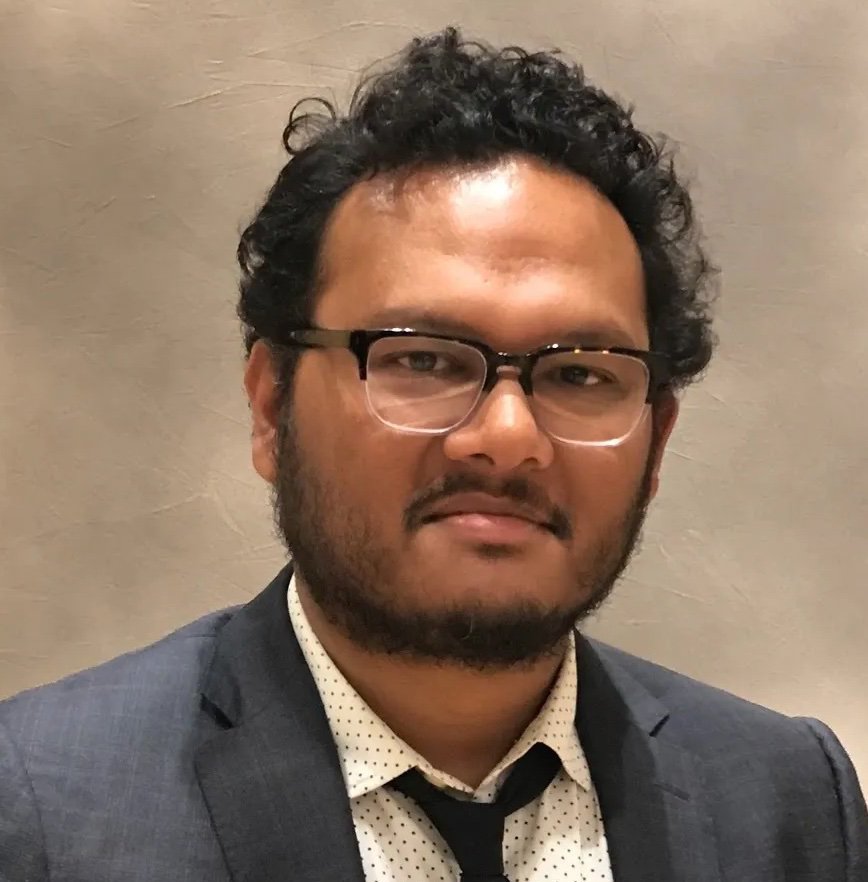 | Saber Khan |
|---|---|---|---|
| (former, until 2023) | 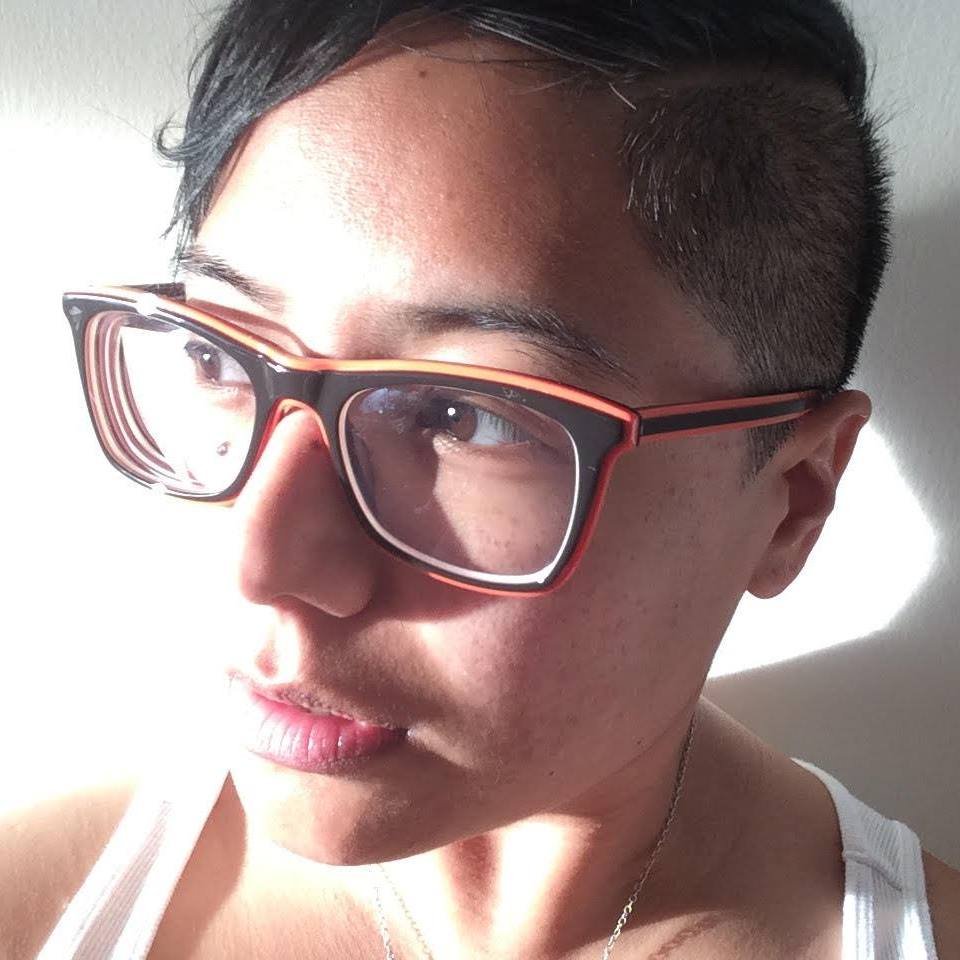 | Dorothy R. Santos | |
| Fellowships Director |  | Tsige Tafesse | |
| Project and Communications | 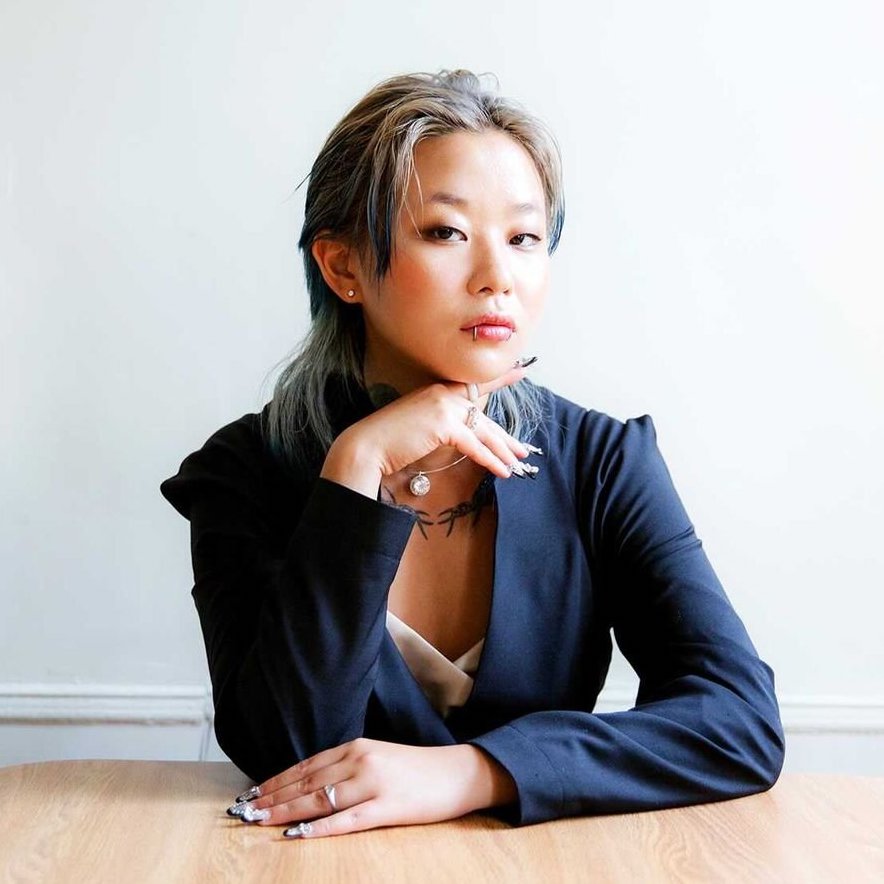 | Sonia Choi | |
| Finance Manager |  | Charles Reinhardt | |
| Senior Director of Outreach and Partnerships |  | Saber Khan | |
| Leads | Processing Community Lead | 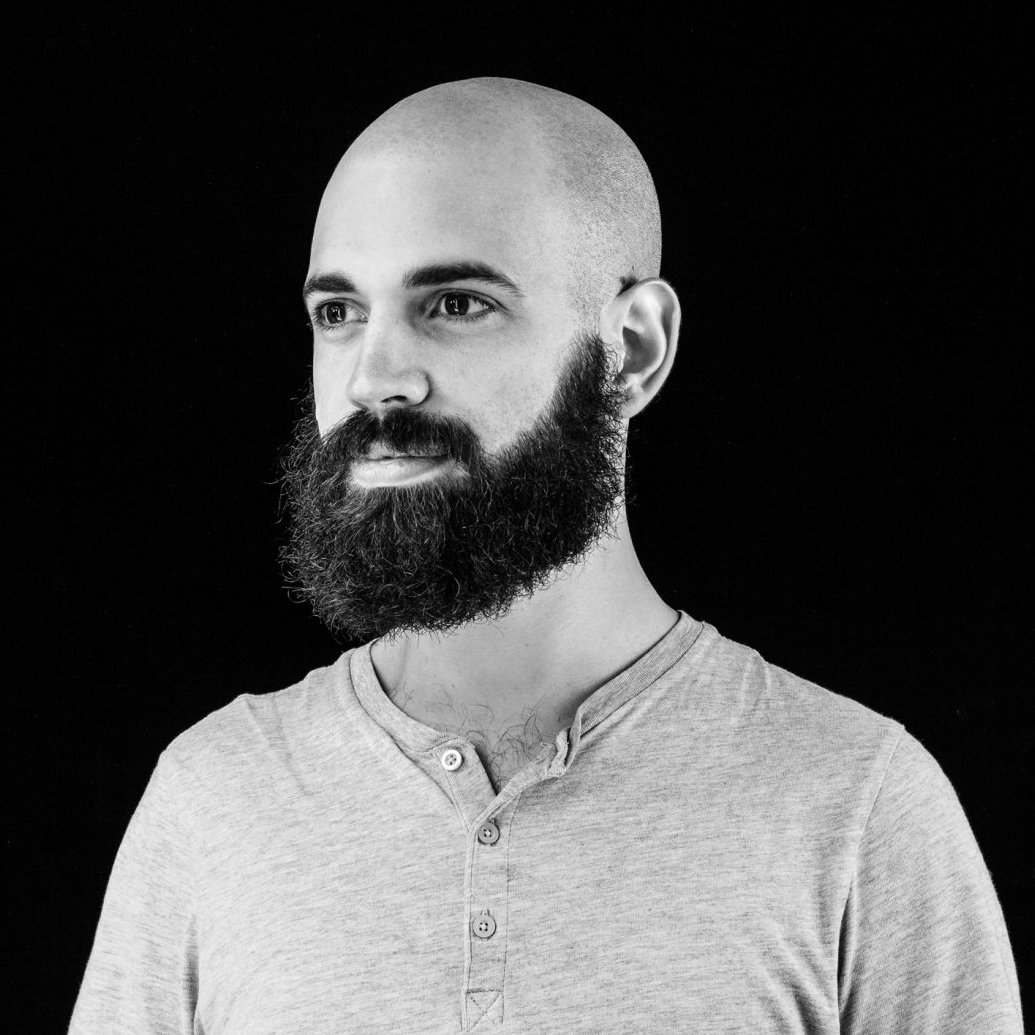 | Raphaël Courville |
| p5.js |  | Qianqian Ye | |
| (former p5.js co-lead, 2021 - 2022) | 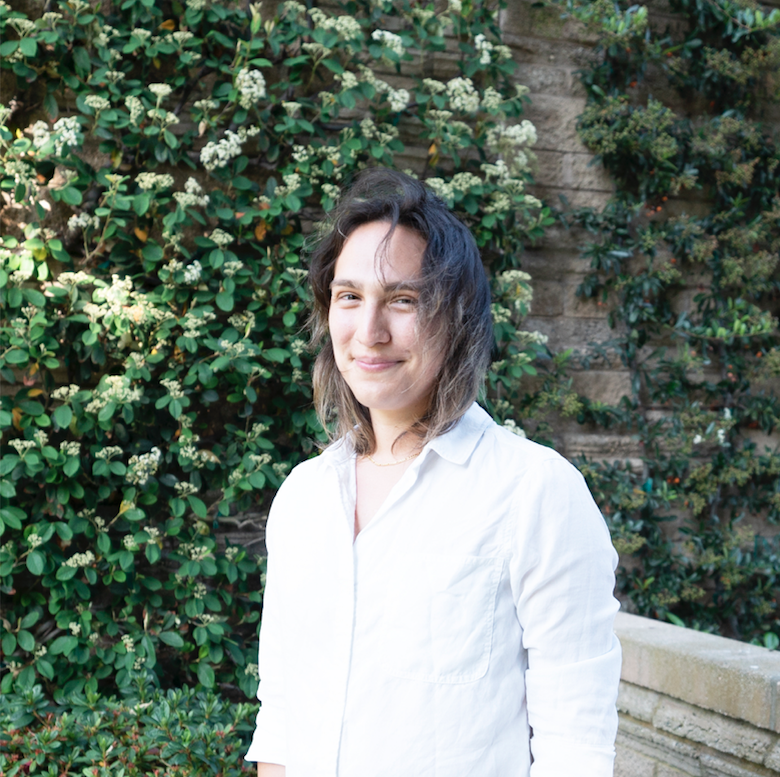 | evelyn masso | |
| p5.js editor | 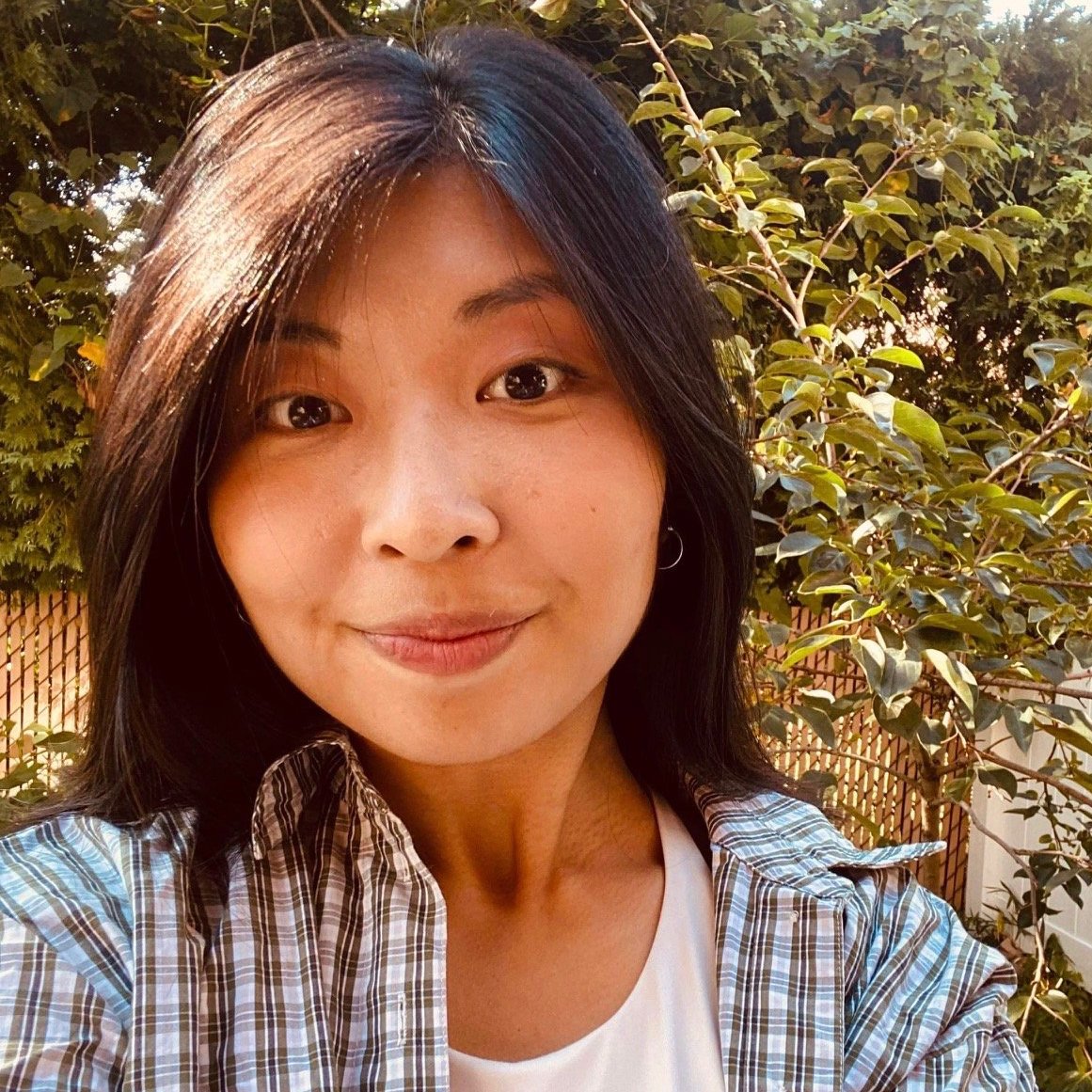 | Rachel Lim | |
| (former lead, until sept 2022) | 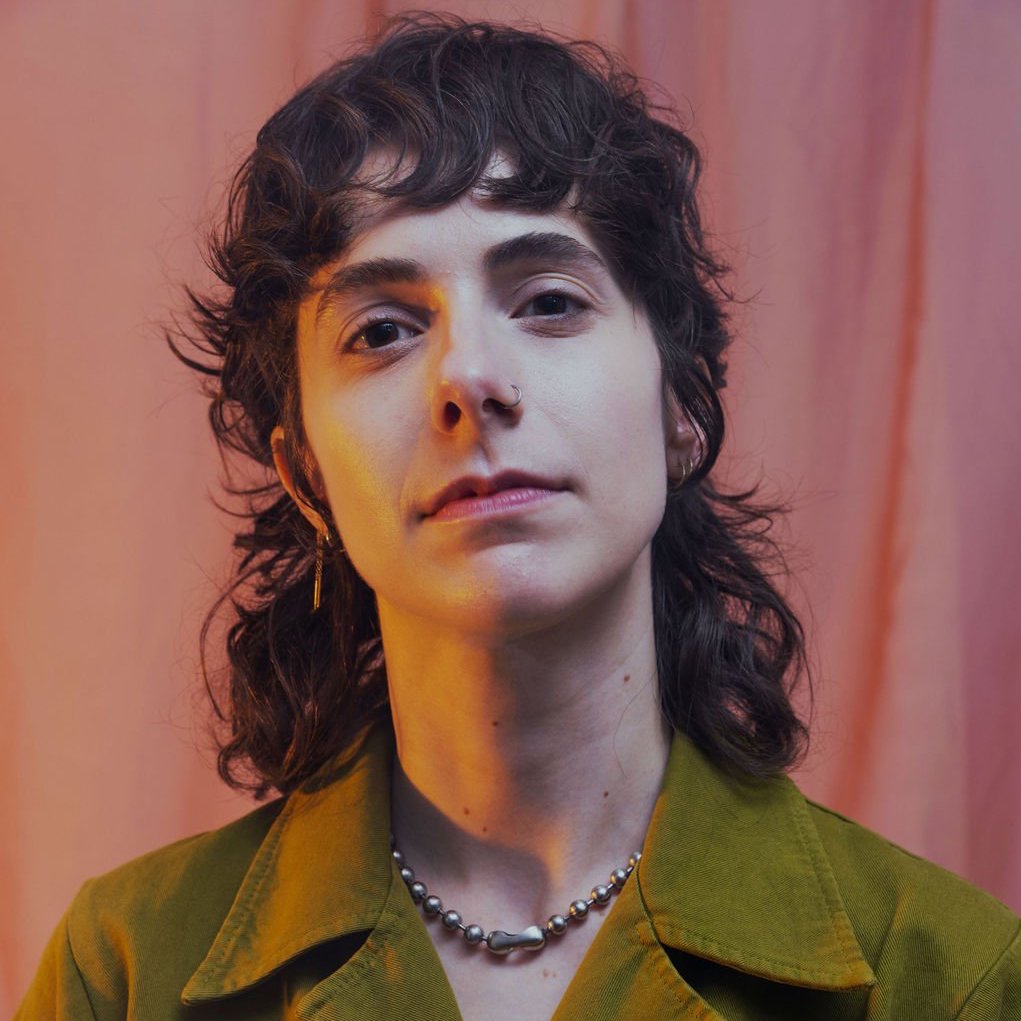 | Cassie Tarakajian |
Community, Code, and Creativity
As the Linux Foundation, a long-time open-source organization, writes, “community is one of the things that can make or break an open-source project.” To this end, Processing Foundation’s programs and events ensure that we connect with the people working with our software, whether teachers in K12 classrooms, making their first contribution to an open-source project via p5.js, or imagining new worlds using their creativity and code. Events and programs ensure that we are guiding the software projects based on broader feedback and support and bringing in new members to our contributor community, which creates pathways for our senior community members to become mentors. While our programming went online in 2020, most of our events are now hybrid or online to provide the best accessibility possible for our international community.
From 2021-2023, we’re proud to have continued our vital programs, such as the Fellowship Program and CC Fest, and expanded our events. Below are some of the highlights and documentation. We look forward to seeing you soon at one of our gatherings!
p5.js access day
In 2022, p5.js Project Lead Qianqian Ye organized and facilitated p5 Access Day (a recorded online event). Their extraordinary work created a day-long event focused on critical web accessibility, disability arts, accessibility, inclusion, community building, and (language) translation. Numerous surveys and studies have shown how increased software accessibility benefits everyone in terms of usability and friendliness, regardless of disability status. Be sure to check out the recorded sessions if you haven’t already!
Fellowships
The program central to our work at the Foundation is our fellowship program. The fellowships support artists, technologists, educators, and collectives in visionary research, work, and creative projects that conceive new and exciting directions for the software projects we support at the foundation. This program is integral in shaping the ways we uplift and support queer, trans, Black, Indigenous people of color, immigrants, and disabled community leaders and organizers. They are an integral part of the foundation’s work toward developing tools of empowerment and access at the convergence of art, science, and technology and to ensure that we are leading the way in creating some of the most innovative software and tools at the intersection of open-source, arts, and technology.
Fellowship projects from the past two years include open-source learning toolkits, furthering the development of the p5 serial library and p5 sound library, and developing performances and games at the intersection of creative coding and education, just to name a few. Please read more about our fellowships on our website.
CC Fest & Summer of Code
Saber Khan organized and facilitated Creative Coding Fest (CCFest) (an in-person and recorded online event), including pedagogical approaches for teaching art, tech, and science in K12 classrooms. Since our first CCFest in New York City in 2016, we have expanded to San Francisco, Los Angeles and online (accessible worldwide). In 2023, our CCFest keynote speakers were Dan Shiffman and Christy Crawford. We’re excited to continue CCFest into 2024, so please stay tuned for more details!

OSACC, PCD & other events
This year, we expanded our community through an event by partnering with the Clinic for Open Source Arts (COSA), co-founded by artists and scholars Chris Coleman and Laleh Mehran at the University of Denver. Processing Board members, artists, and educators Kate Hollenbach and Xin Xin, along with other Foundation team members including Qianqian Ye, Tsige Tafesse, Saber Khan, and Dorothy Santos served as core organizing members of the Open Source Arts Contributors’ Conference (held in April 2023). The conference gathered other open-source software creators and projects such as ml5.js, Close Isn’t Home, netnet, and HYDRA.
As the community of Processing Community Day organizers worldwide has grown alongside our financial capacity, we can now support governance and other needs for PCD globally. In 2022, we provided a grant to PCD Brazil organizers to help sponsor the costs associated with their event.
The Foundation continued its partnership with Collective Action School in 2023, including matching support for a Community Technologist building software at the intersection of art, technology, and advocacy.
We’re expanding the opportunities for our previous fellows and community members to showcase and exhibit their work and increase support for educators using and teaching Processing and p5.js in the classroom, mainly through symposiums and conferences. Expanding our community is vital to us, addressing long-standing issues of equity and burnout in open-source communities more broadly — we have continued our annual work with Google Summer of Code. We are looking to model a more independent program in 2024, with the support of a grant from the National Endowment for the Arts.
Diversity, equity, and inclusion
In 2022, we conducted informational interviews with a dozen community leaders with various experiences and backgrounds, focusing on identifying QTBIPOC individuals committed to open-source software for the arts, accessibility, and inclusion. We also understand that DEI efforts are not just about representation and tokenism, and we are working to ensure that our working processes, communication and governance structures are as clear and equitable so that our organization can support our current QTBIPOC community members who have joined and will be working with us. Creating this sense of organizational belonging is imperative, especially given the broader, projected demographic shifts in the STEM workforce within the US and globally. Changing the dominant culture of STEM and open-source is central to what we do, and we’re excited that our ethos reflects the realities of STEM.
Some members of our core team from 2021-2023 participated in professional learning and development through organizations such as Spring Up and The Rockwood Leadership Institute and we know that increasing our capacity and tools to work in open-source, across differences, will be an essential asset in the years to come.
Sustaining our Community
Based on our current spending and income from investments, donations, and grants, we can continue our current level of operations for at least the next decade.
Annual Budget
Our annual budget is designed to support the team performing the foundation’s essential work:
- maintaining our software projects
- conducting community programs
- applying for grants, handling communications (including social media)
- non-profit compliance and financial reporting
- general project management
The majority, 70%, of our annual budget for 2023 supports our team of 5 full-time staff, including project leads and 2 part-time staff. This amount includes benefits and payroll taxes. We are proud to pay our team competitive salaries for their work.
Another 4% of our budget goes to supporting projects carried out by our Project Lead Fellows, and an additional 2% is allocated to project mentors for our software projects, who play a very active role year-round.
Our other spending includes 12% of our annual budget as support for our annual fellowship program, foundation costs (1.5%), and general operations (5.7%), which includes essentials like web hosting, accounting/auditing, and fundraiser reward fulfillment for donors (for example, production and shipment of the Processing Community Catalog). Our operating costs also include support for communications, partnerships, and outreach, including honoraria for speakers at events like CCFest.
| Category | $$ |
|---|---|
| Staff: Employees and Project Lead Fellows | $680,000 |
| Payroll Taxes and Benefits | $71,100 |
| Fellowships Program | $132,500 |
| Independent Contractors | $20,000 |
| Project Mentors | $24,000 |
| Software Project Operating Funds for use by Project Lead Fellows | $45,000 |
| General Operating Funds for Outreach and Partnerships, Fellowship Program, Communications | $60,000 |
| Foundation Costs | $15,926 |
| Software Spending (Hosting and related costs) | $9,751 |
| Total | $1,056,277 |
Income and Investment Strategy
Following our windfall in 2021, we worked with financial advisors to create an expendable and endowed component of our assets. Previously, this was less urgent, given our scale and that grant funding provided a large portion of our annual revenue. As an organization, we decided to work with a Financial Advisor to create an investment portfolio, our priority in the Winter and Spring of 2022. We selected Zevin Asset Management (a women-run organization focusing on socially responsible investing) to manage our portfolio.
We wanted a financial strategy that would enable us to pay our team full-time wages for their work to ensure our work is sustainable well into the future.
| Investment Group | $$ | Annualized Return | Annual Return ($$) |
|---|---|---|---|
| Zevin Asset Managment | $2,500,000 | 8% | $200,000 |
| Money Market - Citi Bank | $6,500,000 | 3% | $195,000 |
| Total | $9,000,000 | $395,000 |
In addition to our investments, we have other income sources, including grants and donations from contributors. In 2023, through p5.js lead Qianqian Ye’s efforts, we received €200,000 in funding support from the Sovereign Tech Fund. Additionally, given our new fiscal infrastructure, we can now apply for certain types of grants previously unavailable, such as grants that required matching funds. We have also received funding from the National Endowment for the Arts, the Ford Foundation, Google Open Source, Mozilla Foundation, and Knight Foundation to support our programs over the last 5 years. We also receive steady support from contributors and community members outside of the cryptocurrency donations we received in 2021. We are grateful to our funders and donors for their continued support.
Toggle donation types to zoom
into the detail of the contributions
Financial Outlook
Based on our current operations, income, and spending, we can continue to operate as-is for the next 12-13 years. In practice, this runway gives us time to develop more robust internal processes for applying for grants and other forms of fundraising, which will extend our operations well beyond our current estimates. In 2024, we plan to recruit a new executive director to formulate our new fundraising strategy—we look forward to sharing the open call with you in the new year!
| $250,000 | $300,000 | $350,000 | $400,000 | $450,000 | $500,000 | |
| $1,000,000 | 13.6 | 14.57 | 15.69 | 17 | 18.55 | 20.4 |
| $1,250,000 | 10.2 | 10.74 | 11.33 | 12 | 12.75 | 13.6 |
| $1,500,000 | 8.16 | 8.5 | 8.87 | 9.27 | 9.71 | 10.2 |
| $1,750,000 | 6.8 | 7.03 | 7.29 | 7.56 | 7.85 | 8.16 |
| $2,000,000 | 5.83 | 6 | 6.18 | 6.38 | 6.58 | 6.8 |
Project updates
Processing
In 2019, Processing faced significant technical challenges with using Java 8 on modern operating systems and changes in Oracle's licensing policies. We are grateful to Sam Pottinger, whose development of an unofficial fork of Processing 3 laid the groundwork for Processing 4, formally becoming its own project in 2020. Thanks to the efforts of Processing co-founder Ben Fry, Sam, and other contributors, Processing 4 was released as a beta in 2021 and as a final release in 2022.
Changes and bug fixes
Processing 4
Downloads
Processing 4.0 introduced significant improvements behind the scenes, aiming to keep everyone’s code running smoothly on the latest hardware and operating systems. The release also brought new features like the Themes Selector and Movie Maker tool. Since its release, Processing 4 has been downloaded over a million times. 2021 also marked a significant milestone in the visual identity of Processing. Design Systems International (DSI) designed and built the current website and the new Processing family of logos through a year of dedicated volunteer work.
Changes and bug fixes
Processing Website
Website Visitors
Processing for Android continued to evolve, thanks to the efforts of maintainer Andres Colubri. Significant updates were made this year to keep Android Mode and the Processing for Android library in sync with Processing 4's advancements, and Andres published the second edition of the "Processing for Android" book (available from Apress and Amazon). Additional thanks to Gaurav Puniya, Rupesh Kumar, and Aditya Rana for their contributions.
Thanks to our community's efforts, we've seen remarkable projects come to life for Processing 4. Notably, Jeongin Lee developed Creative Machine, a beginner-friendly machine-learning library, Will Rabalais created a friendly error system, and Jakub Rak made the beautiful LazyGui library. This year also saw Kevin Stadler updating the official Processing Sound library, an initiative supported by a fellowship from the Processing Foundation. We are also particularly grateful to the dedicated members of the Processing Foundation Forum, who consistently offer their expertise to guide newcomers, and answer their questions.
In August 2022, Raphaël de Courville joined full-time as Processing Community Lead, taking over responsibilities from co-founder Casey Reas, including the documentation, website, forum, and other community-related activities. This transition marks a new chapter in the Processing journey, with Raphaël bringing fresh perspectives and energy to the project. Casey is integral as Raphaël’s mentor, ensuring the continuity of Processing’s vision and values.
A Note About the Future of Processing
The transition and departure of board member and co-founder Ben Fry will lead to a new future for Processing. At the time of this publication, the foundation is determining what that future will look like. Our focus is on ensuring ongoing support for the dedicated users and contributors of the Processing project. We hope to have a plan in place as soon as possible in 2024.
p5.js
Over the past two years, significant enhancements have been made to the p5.js project, currently under Qianqian Ye’s leadership and previously co-led with evelyn masso (2021-2022). Thanks to all the contributors, especially first-time contributors from 2021 to 2023, the p5.js library has merged 603 pull requests, closed 532 issues, made 2705 commits, and released 6 versions, including 4 patch releases and 2 minor releases. The most recent version 1.8.0 introduced new WebGL mode tools, including accelerated filters and improved shape manipulation capabilities. Documentation has been improved thoroughly for clarity and completeness. The p5.js website underwent extensive updates for accessibility and organization, including the addition of new pages and community-contributed libraries. The p5.js website has merged 184 pull requests, closed 156 issues, and made 788 commits over the past two years.
Changes and bug fixes
p5.js
p5.js Website
Minor and Patch Releases Timeline
Version 1.4.0
We fixed the GIF flickering bug, got the version number of the p5.js library running within a sketch, and added a textWrap() command, which sets how text is displayed with text() wraps. We ported core parts of the sound library to use a part of the web audio API called Audio Worklet to keep the p5.js sound functionalities working in p5.js in modern (and future) browsers. We updated documentation for 3D graphics functions and greatly expanded the Hindi version of our contributor docs.
Version 1.4.1
Version 1.4.2
Version 1.5.0
Now you can export gif from p5.js directly (Thanks to GSoC 2022 contributor @Jesús Rascón!), scale images to fit or fill a box automatically, get better tint() performance, combine webGL materials, + lots of small webGL fixes.
Version 1.6.0
This release helps make p5.js WebGL mode work more like 2D mode: shape drawing, transparency, blend modes, and strokes supporting line caps and joins. WebGL mode can now blend colors along vertices and curves in strokes in addition to fills. We've also included many bug fixes for text, textures, and gif exports, including letting you export gifs from setup().
Version 1.7.0
This release adds WebGL2 support, and provides tools for smoother camera movement and more natural orbitControl() thanks to several improvements by @inaridarkfox4231. It also introduces createFramebuffer() for fast layering and feedback and the ability to read 3d depth information.
Version 1.8.0
In this release, p5.js added some new WebGL mode tools, including filters that now run in shaders for extra speed and custom filter shaders run even on 2D canvases. You can now cut shapes with beginContour() and apply vector masks with beginClip(). You can reuse shapes more efficiently with buildGeometry() and instanced rendering. We updated a group of p5.js Reference pages as part of 2023 Season of Docs (SoD) program, intending to make them more accessible and beginner-friendly.
The p5.js contributor and steward community expanded extensively over the past two years, reaching 50+ stewards and 611 contributors. p5.js received funding support of €200,000 from the Sovereign Tech Fund and additional external funding for participation in programs such as Google Season of Docs and Google Summer of Code. The p5.js community engagement metrics revealed 8 million website visits and 687k unique visitors in the last twelve months.
Visitors & Platforms
Special gratitude is extended to contributors such as Lauren Lee McCarthy, Kenneth Lim, Dave Pagurek, Nick McIntyre, Gus Becker, Cy X, Alm Chung, Karen Abe, and others for their significant contributions and roles in mentoring, moderating, and organizing. We want to acknowledge and thank all the p5.js stewards and contributors.
p5.js editor
Since September 15, 2022, the p5.js editor project has significantly improved, introducing features like a mobile version, file preview, and Korean, Italian, and Turkish translations. Additions include autocomplete enhancements, Bluetooth permissions for iframes, and the ability to upload and create .stl files. GitHub updates featured a new issue template format and Brazilian Portuguese translations for developer docs. Significant changes involved transitioning older React components to the new standard format and upgrading third-party dependencies like React-Router from v3 to v5. Over the past two years, the project has addressed 143 merged pull requests, closed 192 issues, and released 15 times, including 9 patch releases and 6 minor releases.
Changes and bug fixes
One of our major research projects in early 2021, funded by Grant for the Web, involved examining the monetization of the p5.js editor to pay for increasing server costs and financial compensation for the project maintainer. The generous community donations in late 2021 allowed us to keep the editor free, accessible, and open to the general public, especially educators and students, since they rely on this platform as a primary teaching and creative tool.
Rachel Lim was appointed as the new project lead in 2022, mentored by Cassie Tarakajian, with a new maintainer (Linda Paiste) and a partnership with Fastly in their Fast Forward Program. Community engagement metrics revealed 407,549 unique visitors and 1,921,808 page visits in the last year, with 41 contributors, including 32 first-time contributors, totaling 157 contributors from 2016 to 2023. Plans encompass implementing sketch privacy and permissions, updating Codemirror to version 6, and investigating the cybersecurity aspects of the p5.js editor.
Visitors, users and contributors
Special recognition is extended to contributors such as Linda Paiste, Shuju Lin, Dewansh Thakur, and Peiling Jang for their significant contributions and roles in mentoring, project development, and academic collaboration.
Community Survey
In late 2022, we conducted a community survey to understand the needs of our community. We received over 600 responses from 66 countries. We extend our heartfelt thanks to the community translators who played a crucial role in making this survey accessible to such an international audience.
The survey highlighted the widespread use of our software, with a notable focus on hobbies, art projects, and teaching, showcasing the versatility of Processing and p5.js. Notably, while over 40% of respondents have been using Processing for over six years, demonstrating a strong, established user base, there is also a considerable influx of new users, with approximately 20% having less than a year's experience. This balance suggests healthy growth and continued relevance of the software.
However, the survey allowed us to pinpoint priority areas, such as enhancing engagement with younger students, especially those aged 14-17, addressing language barriers in documentation, providing more resources for educators, ensuring better maintenance of first-party libraries, and intensifying efforts towards gender diversity. These findings are crucial for shaping the Foundation's future endeavors and our dedication to nurturing a vibrant, inclusive community and reflective of broader demographic shifts in STEM fields.
Results
Looking Ahead
The value of the Processing Foundation lies in its commitment to making technology accessible and understandable to a diverse audience. By emphasizing collaboration and open-source development, the foundation ensures its tools and knowledge are freely available, encouraging a culture of sharing and learning. This ethos is why we remain excited to work with the organization as advisors. The success of the p5.js project is a testament to the foundation's effectiveness in nurturing projects that resonate with a broad audience.
Establishing the Processing Foundation was essential to provide a structured, supportive environment for projects like p5.js. We are proud of the foundation's work to advance its mission of fostering a diverse and inclusive community. Its uniqueness lies in its unwavering commitment to education and open-source principles.
Leading and supporting the organization has taught us the power of community and the importance of accessibility in technology. The foundation has supported its mission by providing tools and nurturing a supportive community around these tools. The foundation should focus on education, inclusivity, and open-source development to continue serving its purpose. The success of p5.js demonstrates the far-reaching impact of tools made with an inclusive approach.
The Processing Foundation has always been about learning. We hope new contributors in our community will continue to embrace the collaborative spirit and be willing to experiment and learn. Your contributions, no matter how small, are valuable.
Thank yous!
We want to express our heartfelt gratitude to many, for being part of our community, for donating, for volunteering, for mentoring, for being a fellow, for sharing your work, for identifying bugs, for teaching, for learning, for asking a question, for answering a question…We are fortunate to be in community with you all!
© 2023 Processing Foundation. Published on December 6th, 2023